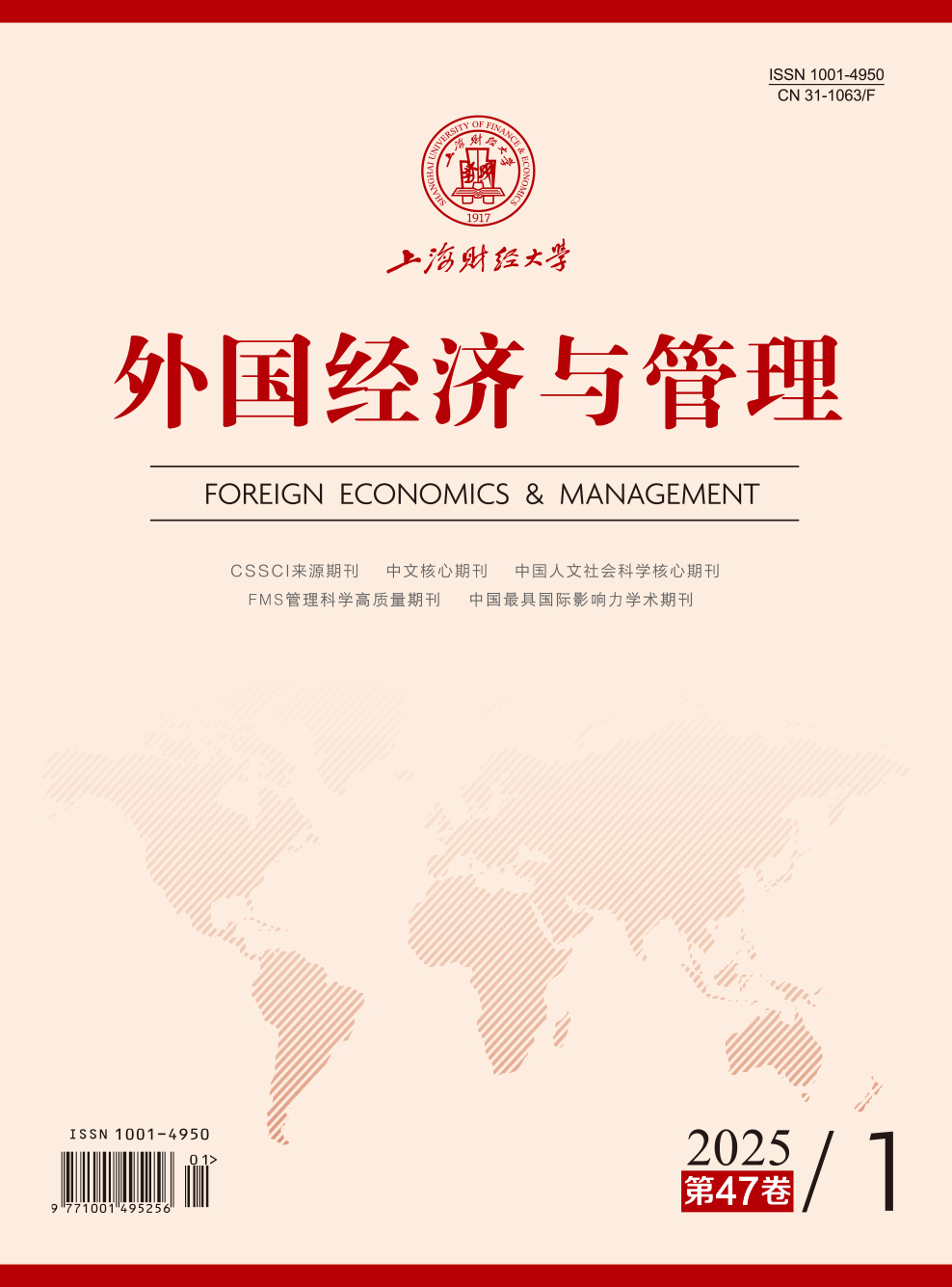平台型领导是一种以知识型团队共同成长为终极目标的新型领导模式。然而,学界对该类领导与成员、团队三方互动成长的具体机制尚不清楚,尤其是作为共生系统源动力的平台型领导如何假手于成员来赋能自我成长。本文基于社会交换视角和向下学习过程,构建了一个平台型领导在向下知识分享中反哺学习,然后进行工作重塑以助力自身成长和团队惯例更新的链式中介模型。对共计420名知识型团队领导及
平台型领导赋能共同成长:“己欲达而达人”的反哺学习机制
摘要
参考文献
摘要
5 郝旭光, 张嘉祺, 雷卓群, 等. 平台型领导: 多维度结构、测量与创新行为影响验证[J]. 管理世界, 2021, 37(1): 186-199, 216. DOI:10.3969/j.issn.1002-5502.2021.01.012
8 李玲, 陶厚永, 宋浩. 平台型领导对员工主动创新行为的跨层次影响[J]. 科技进步与对策, 2022, 39(13): 132-140. DOI:10.6049/kjjbydc.C202107411
10 梁阜, 邱圆心, 李琪. 双元环境下平台型领导如何促进组织持续创新能力提升——组织韧性的中介作用[J]. 科技进步与对策, 2023, 40(15): 23-31. DOI:10.6049/kjjbydc.2022050021
13 吕鸿江, 张秋萍, 彭丽娟. 领导被下属“逆向指导”的权变机制——信息深加工和信任地位的作用[J]. 中国工业经济, 2020, (11): 174-192. DOI:10.3969/j.issn.1006-480X.2020.11.010
18 王永伟, 吴湘繁, 叶锦华, 等. CEO变革型领导行为、组织认同与组织惯例更新: 集体主义倾向的调节效应[J]. 管理评论, 2023, 35(1): 209-221. DOI:10.3969/j.issn.1003-1952.2023.1.glpl202301018
19 王志文. 中国情境下二次创业的社会网络反哺本质解析[J]. 科技进步与对策, 2013, 30(20): 67-71. DOI:10.6049/kjjbydc.2013060404
25 闫华飞, 孙元媛. 双元创业学习、创业拼凑与新企业成长绩效的关系研究[J]. 管理学刊, 2019, 32(3): 41-51. DOI:10.3969/j.issn.1674-6511.2019.03.005
26 周飞, 林春培, 孙锐. 道德领导与组织管理创新关系研究: 非正式知识共享的中介作用[J]. 管理评论, 2015, 27(5): 169-177.
27 朱平利, 刘娇阳. 员工工作获得感: 结构、测量、前因与后果[J]. 中国人力资源开发, 2020, 37(7): 65-83.
28 朱永跃, 时锐, 欧阳晨慧. 平台型领导对员工越轨创新行为的影响: 责任知觉与团队动机氛围的作用[J]. 科技进步与对策, 2023, 40(13): 131-140. DOI:10.6049/kjjbydc.Q202207414
29 Abrantes A C M, Passos A M, Cunha M P E, et al. Getting the knack for team-improvised adaptation: The role of reflexivity and team mental model similarity[J]. The Journal of Applied Behavioral Science, 2022, 58(2): 281-315. DOI:10.1177/00218863211009344
30 Bandura A. Social learning theory[M]. New York: General Learning Corporation, 1971.
31 Bruning P F, Campion M A. A role-resource approach-avoidance model of job crafting: A multimethod integration and extension of job crafting theory[J]. Academy of Management Journal, 2018, 61(2): 499-522. DOI:10.5465/amj.2015.0604
32 Cropanzano R, Anthony E L, Daniels S R, et al. Social exchange theory: A critical review with theoretical remedies[J]. Academy of Management Annals, 2017, 11(1): 479-516. DOI:10.5465/annals.2015.0099
33 Devi N C. Paradoxical leadership and employee creativity: Knowledge sharing and hiding as mediators[J]. Journal of Knowledge Management, 2024, 28(2): 312-340. DOI:10.1108/JKM-10-2022-0779
34 Ding T W, Qi Z R, Yang J P. For the organization is for oneself: Impact of platform leadership on harmonious innovation passion of new-generation employees[J]. Journal of Organizational Change Management, 2023, 36(6): 985-1009. DOI:10.1108/JOCM-04-2023-0116
35 Feldman M S, Pentland B T. Reconceptualizing organizational routines as a source of flexibility and change[J]. Administrative Science Quarterly, 2003, 48(1): 94-118. DOI:10.2307/3556620
36 Fredrickson B L. Positive emotions broaden and build[J]. Advances in Experimental Social Psychology, 2013, 47: 1-53.
37 Goswami A K, Agrawal R K. It’s a knowledge centric world! Does ethical leadership promote knowledge sharing and knowledge creation? Psychological capital as mediator and shared goals as moderator[J]. Journal of Knowledge Management, 2023, 27(3): 584-612. DOI:10.1108/JKM-09-2021-0669
38 Hendricks L, Matthyssens P. Platform ecosystem development in an institutionalized business market: The case of the asset management industry[J]. Journal of Business & Industrial Marketing, 2023, 38(2): 395-413.
39 Hu J, Zhang S X, Lount Jr R B, et al. When leaders heed the lessons of mistakes: Linking leaders’ recall of learning from mistakes to expressed humility[J]. Personnel Psychology, 2024, 77(2): 683-712. DOI:10.1111/peps.12570
40 Kelemen T K, Matthews S H, Matthews M J, et al. Humble leadership: A review and synthesis of leader expressed humility[J]. Journal of Organizational Behavior, 2023, 44(2): 202-224. DOI:10.1002/job.2608
41 Kim E J, Park S. Transformational leadership, knowledge sharing, organizational climate and learning: An empirical study[J]. Leadership & Organization Development Journal, 2020, 41(6): 761-775.
42 Kline R B. Principles and practice of structural equation modeling[M]. New York: The Guilford Press, 2023.
43 Lee J H, Ogawa K I. Emergence of a mutual-growth mechanism in networks evolved by social preference based on indirect utility[J]. Scientific Reports, 2023, 13(1): 21680. DOI:10.1038/s41598-023-48827-6
44 Lingens B, Huber F, Gassmann O. Loner or team player: How firms allocate orchestrator tasks amongst ecosystem actors[J]. European Management Journal, 2022, 40(4): 559-571. DOI:10.1016/j.emj.2021.09.001
45 Miao R T, Yu J, Bozionelos N, et al. Organizational career growth and high-performance work systems: The roles of job crafting and organizational innovation climate[J]. Journal of Vocational Behavior, 2023, 143: 103879. DOI:10.1016/j.jvb.2023.103879
46 Mitchell M S, Greenbaum R L, Vogel R M, et al. Can you handle the pressure? The effect of performance pressure on stress appraisals, self-regulation, and behavior[J]. Academy of Management Journal, 2019, 62(2): 531-552. DOI:10.5465/amj.2016.0646
47 Neeley T, Reiche B S. How global leaders gain power through downward deference and reduction of social distance[J]. Academy of Management Journal, 2022, 65(1): 11-34. DOI:10.5465/amj.2019.0531
48 Nigam A, Huising R, Golden B. Explaining the selection of routines for change during organizational search[J]. Administrative Science Quarterly, 2016, 61(4): 551-583. DOI:10.1177/0001839216653712
49 Podsakoff P M, MacKenzie S B, Lee J Y, et al. Common method biases in behavioral research: A critical review of the literature and recommended remedies[J]. Journal of Applied Psychology, 2003, 88(5): 879-903. DOI:10.1037/0021-9010.88.5.879
50 Preacher K J, Zyphur M J, Zhang Z. A general multilevel SEM framework for assessing multilevel mediation[J]. Psychological Methods, 2010, 15(3): 209-233. DOI:10.1037/a0020141
51 Rousseau V, Aubé C. When leaders stifle innovation in work teams: The role of abusive supervision[J]. Journal of Business Ethics, 2018, 151(3): 651-664. DOI:10.1007/s10551-016-3258-8
52 Slemp G R, Vella-Brodrick D A. The job crafting questionnaire: A new scale to measure the extent to which employees engage in job crafting[J]. International Journal of Wellbeing, 2013, 3(2): 126-146.
53 Xue Y J, Bradley J, Liang H G. Team climate, empowering leadership, and knowledge sharing[J]. Journal of Knowledge Management, 2011, 15(2): 299-312. DOI:10.1108/13673271111119709
54 Zhang T, Wang D J, Galinsky A D. Learning down to train up: Mentors are more effective when they value insights from below[J]. Academy of Management Journal, 2023, 66(2): 604-637. DOI:10.5465/amj.2021.0430
引用本文
熊立, 方佳星, 罗元大, 等. 平台型领导赋能共同成长:“己欲达而达人”的反哺学习机制[J]. 外国经济与管理, 2025, 47(1): 88-103.
导出参考文献,格式为:
上一篇:数智战略研究的现有版图与未来疆域





 4041
4041  4646
4646

